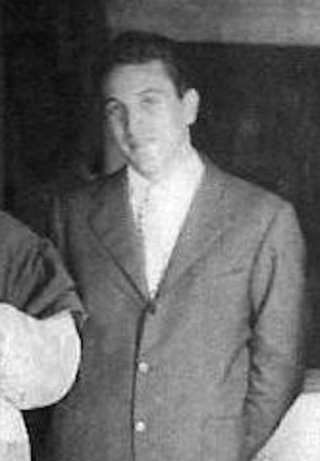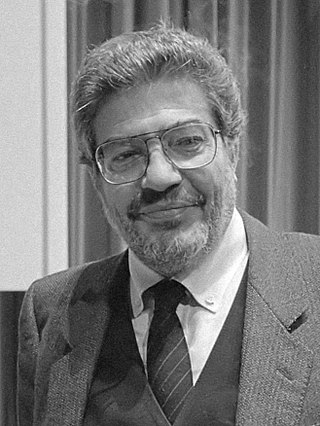
Andrei Arsenyevich Tarkovsky was a Soviet film director and screenwriter. He has been widely considered one of the best directors in cinema history. His films explore spiritual and metaphysical themes and are known for their slow pacing and long takes, dreamlike visual imagery and preoccupation with nature and memory.

Roberto Gastone Zeffiro Rossellini was an Italian film director, screenwriter and producer. He was one of the most prominent directors of the Italian neorealist cinema, contributing to the movement with films such as Rome, Open City (1945), Paisan (1946), and Germany, Year Zero (1948). He is also known for his films starring Ingrid Bergman, Stromboli (1950), Europe '51 (1952), Journey to Italy (1954), Fear (1954) and Joan of Arc at the Stake (1954).

Italian neorealism, also known as the Golden Age of Italian Cinema, was a national film movement characterized by stories set amongst the poor and the working class. They are filmed on location, frequently with non-professional actors. They primarily address the difficult economic and moral conditions of post-World War II Italy, representing changes in the Italian psyche and conditions of everyday life, including poverty, oppression, injustice and desperation. Italian Neorealist filmmakers used their films to tell stories that explored the contemporary daily life and struggles of Italians in the post-war period. Italian neorealist films have become explanatory discourse for future generations to understand the history of Italy during a specific period through the storytelling of social life in the context, reflecting the documentary and communicative nature of the film. Some people believe that neorealistic films evolved from Soviet montage films. But in reality, compared to Soviet filmmakers describing the people's opposition to class struggle through their films, neorealist films aim to showcase individuals' resistance to reality in a social environment.

Antonio Margheriti, also known under the pseudonyms Anthony M. Dawson and Antony Daisies, was an Italian filmmaker. Margheriti worked in many different genres in the Italian film industry, and was known for his sometimes derivative but often stylish and entertaining science fiction, sword and sandal, horror/giallo, Eurospy, Spaghetti Western, Vietnam War and action movies that were released to a wide international audience. He died in 2002.

Ermanno Olmi was an Italian film director and screenwriter best known for directing Il Posto (1961) and The Tree of Wooden Clogs (1977), which won the Palme d'Or. Throughout his career Olmi blended Italian neorealism with Christian humanism, with many of his films following humble characters through the spiritual trials of harsh conditions.

Khairy Beshara is an Egyptian film director active in the Egyptian film industry since the 1970s. He is considered one of the Egyptian directors who re-defined Realism in Egyptian cinema in the 1980s. In a recent book published by Bibliotheca Alexandrina in 2007 about the most important 100 films in the history of Egyptian cinema, three of his movies were listed: The Collar and the Bracelet, Bitter Day, Sweet Day, and Ice Cream in Gleem.

Breakin' is a 1983 American breakdancing-themed musical film directed by Joel Silberg and written by Charles Parker and Allen DeBevoise based on a story by Parker, DeBevoise and Gerald Scaife.

Marco Ferreri was an Italian film director, screenwriter and actor, who began his career in the 1950s directing three films in Spain, followed by 24 Italian films before his death in 1997. He is considered one of the greatest European cinematic provocateurs of his time and had a constant presence in prestigious festival circuit - including eight films in competition in Cannes Film Festival and a Golden Bear win in 1991 Berlin Film Festival. Three of his films are among 100 films selected for preservation for significant contribution to Italian cinema.

Ettore Scola was an Italian screenwriter and film director. He received a Golden Globe for Best Foreign Film in 1978 for his film A Special Day and over the course of his film career was nominated for five Academy Awards for Best Foreign Language Film.

Nelo Risi was an Italian poet, film director, translator and screenwriter, nephew of cinematographer Fernando Risi and younger brother of director Dino Risi.

Carlo Lizzani was an Italian film director, screenwriter and critic.

The David di Donatello Awards, named after Donatello's David, a symbolic statue of the Italian Renaissance, are film awards given out each year by the Accademia del Cinema Italiano. There are 26 award categories, as of 2023. The industry-voted awards are considered the Italian equivalent of the American Academy Awards.

The cinema of Saudi Arabia is a fairly small industry that only produces a few feature films and documentaries every year. Theaters were closed after religious activism in the 1980s. With the exception of one IMAX theater in Khobar, there were no cinemas in Saudi Arabia from 1983 to 2018, although there was occasionally talk of opening movie theaters, and in 2008 conference rooms were rented to show the comedy Mennahi. Saudis wishing to watch films have done so via satellite, DVD, or video. Cinemas were banned for 35 years until the first cinema in Saudi Arabia opened on 18 April 2018 in Riyadh. AMC Theatres planned to open up to 40 cinemas in some 15 Saudi cities over the following five years. The government hopes that by 2030, Saudi Arabia will have more than 300 theaters with over 2,000 movie screens. Cinema of Saudi Arabia, whether locally-produced or foreign-sourced, is subject to Saudi censorship.

Francesco Maselli, also known as Citto Maselli, was an Italian film director and screenwriter.

Haitian cinema includes the films and filmmakers of Haiti. The Haitian diaspora is active in the industry. Oppressive dictators and economic struggles have limited production.
The Annecy Italian Film Festival, founded in 1983 and since then, each year shows the best of contemporary Italian cinema. The private festival is held annually at the Centre Culturel de Bonlieu, in the town of Annecy, in the middle of France.
Mario Morra is an Italian film editor, director and screenwriter.

Fabio Carpi was an Italian director, screenwriter, and author.
The cinema of Libya has had an uneven history. Though there was little local film production in Italian Libya and the Kingdom of Libya, cinema-going became a popular entertainment activity. From 1973 onwards, Muammar Gaddafi tried to exercise control over cinema. Though he encouraged some local filmmaking, his obstruction of foreign film consumption resulted in the closing of cinemas. In the post-2011 instability in Libya, hopes for a resurgence of Libyan cinema combine with a lack of infrastructure.
















